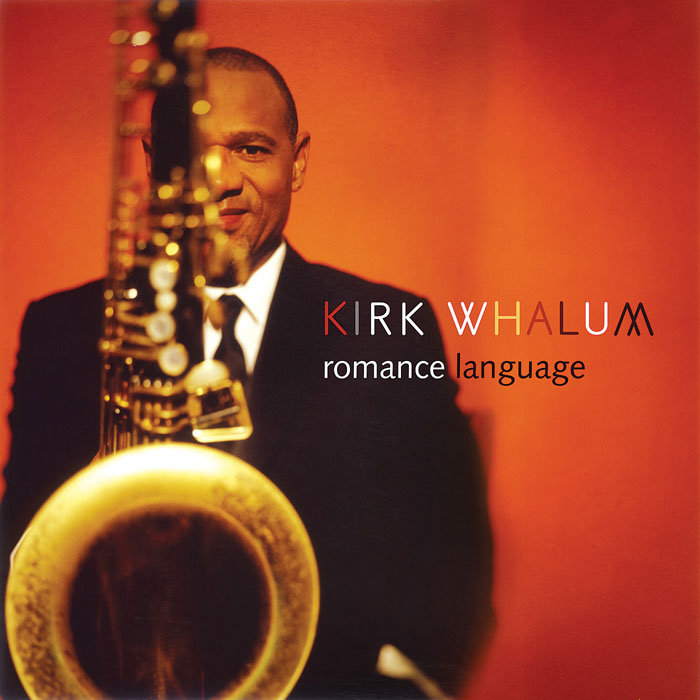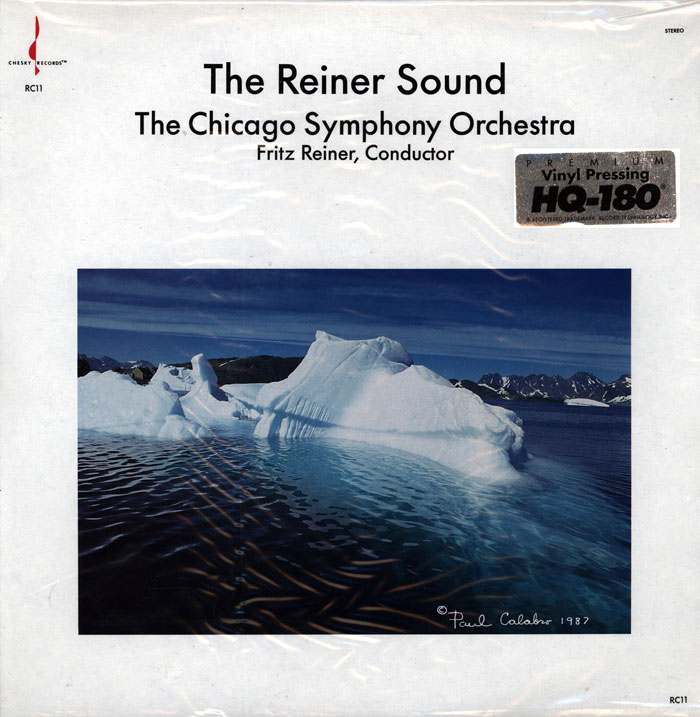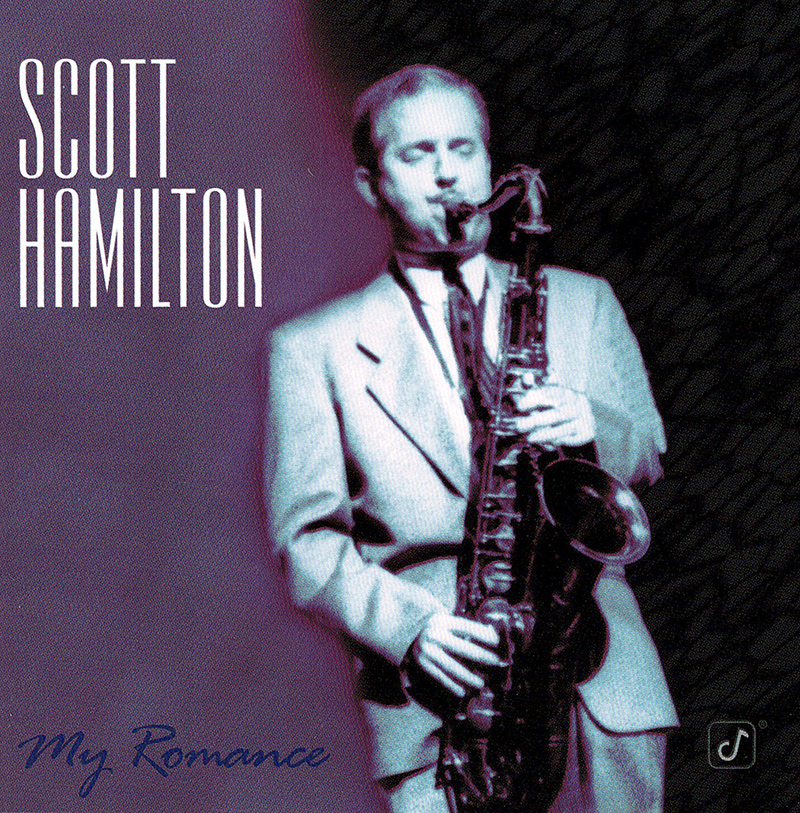Logowanie
Dziś nikt już tak genialnie nie jazzuje!
Bobby Hutcherson, Joe Sample
San Francisco
SHM-CD/SACD - NOWY FORMAT - DŻWIĘK TAK CZYSTY, JAK Z CZASU WIELKIEGO WYBUCHU!
Wayne Shorter, Freddie Hubbard, Herbie Hancock, Ron Carter, Elvin Jones
Speak no evil
UHQCD - dotknij Oryginału - MQA (Master Quality Authenticated)
Chesky! Niezmiennie perfekcyjny
Winylowy niezbędnik
ClearAudio
Double Matrix Professional - Sonic
najbardziej inteligentna i skuteczna pralka do płyt winylowych wszelkiego typu - całkowicie automatyczna
Cyrus Chestnut Trio
Journeys
Chestnut's Sophomore CD for the Label and Return to Piano Trio Format Features Dezron Douglas and Neal Smith. When a young musician makes a sensational debut, it's a moment that's thrilling and yet also familiar; similar fireworks flash with the arrival of each successive prodigy. But when that musician achieves true insight, through talent informed by experience, and lifts his work into a higher realm of achievement, that is a real milestone, rare and sublime. Arguably, Cyrus Chestnut crossed that line years ago. But with the release of his latest album, Journeys, it's not arguable at all: He affirms his position as an artist among musicians, thanks to his mastery of one of the most challenging formats in contemporary music. The piano trio is hardly a new concept in jazz. Certainly Chestnut has established himself as a giant in that format, through albums stretching back to his 1990 debut Nut and in countless appearances at clubs, concert halls and festivals throughout the world. Even so, Journeys, his sophomore release for the Jazz Legacy Productions label, marks a watershed moment in his ongoing growth as a pianist, composer and bandleader. "This is a trio record, as opposed to a piano trio record," he points out. "On many piano trio records, the bassist and drummer are in the background, mainly in the role of accompaniment. They may get a solo here or there, but it's pretty much the piano in the forefront. Journeys is more interactive. If you listen carefully, it's about three gentlemen paying close attention to each other. Each of us is listening to the others, reacting and working together for what I believe is the unique sound of this particular unit." The lineup on Journeys is equipped fully for that challenge. Chestnut has played frequently with both bassist Dezron Douglas and drummer Neal Smith, who have also worked together on other projects. They came to the Journeys sessions with specific knowledge of how their combination would work and in peak condition to transform each track into a showpiece of empathetic improvisation within the structure of the tune. On this date, then, Chestnut knew that his role as "leader" carries an almost contradictory meaning. It's a lesson he learned from the mentors who helped him mobilize the knowledge he picked up at the Berklee School into a skill set that was relevant to the way the best artists interacted in performance. None drove that lesson home as clearly and passionately as Betty Carter, particularly on one gig that Chestnut remembers vividly playing with her even now. "We were playing 'If I Were a Bell' at Kimball's East in Emeryville, California," he says. "I was just playing the Miles Davis arrangement, note for note. Afterwards, she called me into her dressing room and said, 'I did not bring you here to play something I heard 40 years ago. I don't need to hear it again. I've been there. I know it better than you. You need to create something different.' I carry that lesson deep within me, to always find something new, a different way of playing something. I dig consistency, but I'm never satisfied with playing 'as usual.' "If I did," he concludes, with a laugh, "Betty Carter would come back and get me!" The late and legendary singer can rest easy, as Journeys unfolds into a dance of beautifully crafted material and understated yet often electrifying invention. This is perhaps clearest on "Lover," the sole track not written by Chestnut; because its structure and melody are so familiar, it's easy to appreciate how inspired Douglas' line is, from its slipping in and out of double time to the path it threads through the descending chords of each verse. Meanwhile, Smith allows the bass and piano to play off of each other by holding down a steamy, simmering beat - and then doubling the momentum as Chestnut begins stretching out, with a perfectly placed hi-hat pulse. The bar stays high on the original material too. Many of Chestnut's works feature sophisticated chord changes and harmonies. But whether amplifying on the opening motif in the breezy "Flowers on the Terrace" or teasing the gentle tensions which play between major and minor on the waltz-time "Eyes of an Angel," they all stem from a fundamental melodic concept, which illuminates a path for improvisation while also keeping the results open to appreciation at every level of listening. "I like to construct melodies that tell stories, based on what I've seen, what I feel and what I hear," Chestnut explains. "If I can connect to what I'm playing, then I'll be able to share it. That's why you may think that some of what I do seems simple, but when you get into it, it's not as simple as you think." Take, for example, the title cut, an emotionally complex tune, yet so clear in its communication that it's easy not to notice the time signature. "It's in 5/4," Chestnut says. "Now, sometimes you hear 5/4 pieces that seem like they're supposed to sound like they're in 5. But my effort here was simply to create a journey. It wasn't like, 'Okay, I need something in an odd meter.' 'Journeys' just happens to be in 5/4, but that's not so important; this is how the music came to me, and the meter is just a gateway toward how to understand it." The idea of receiving rather than composing this music is critical to Journeys. More broadly, it reflects how Chestnut's creative and personal sides are drawing closer, even blending inseparably. For example, it's no accident that the minor feel in the opening section of "New Light" blossoms unexpectedly into a major tonality as the solos begin on the verses. "'New Light' - that's it," he observes. "We don't live in darkness. Even if there's a rainstorm and the clouds make the sky black, the sun still finds a way to peek through. It's not just about major, minor, augmented and diminished tonalities; it's about how they relate to you. How do they feel?" It's also a sign of Chestnut's deeper understanding of his role as a leader. "A good leader always listens," he insists. "Sometimes you have to put your foot on the gas and steer, but sometimes you have to back up and let everybody be who they are. Time and experience have got me to the point where I need to let the musicians be who they are. Ultimately the best results are when you challenge the cast around you not to just play the notes on the paper but to use their hearts, minds and spirits to contribute. On Journeys, I wanted Neal to be Neal. I wanted Dezron to be Dezron. And I tried to be me." Chestnut's journey, to borrow his title, remains unfinished. It has taken him from childhood performances on piano at church in Baltimore through formative work with Jon Hendricks, Terence Blanchard, Donald Harrison, Wynton Marsalis and the aforementioned Betty Carter through a catalog of his own albums and collaborations. These range from a gospel collaboration with the spectacular operatic virtuoso Kathleen Battle to celebrations of the Peanuts comic strip and Elvis Presley to his debut on film in Robert Altman's Kansas City. Yet the Journeys appellation doesn't stand on the foundations of what he has accomplished. "This record is about life ... my life, not necessarily as it was but what has yet to be," he says. "Every piece is a story based on what I've felt or heard. There are introspective stories, stories of fun, stories of brief sadness and always a story of triumph." But on reflection, he adds, "And it's not just my journey. It's anybody's journey through life, looking forward to your next destination, wherever that is. The journey of life is happy and sad, it's frivolous, it's serious ... It's everything. I hope that people will think of it as something they can listen to and find solace or inspiration, whatever they need." Cyrus Chestnut - piano Dezron Douglas - bass Neal Smith - drums


































